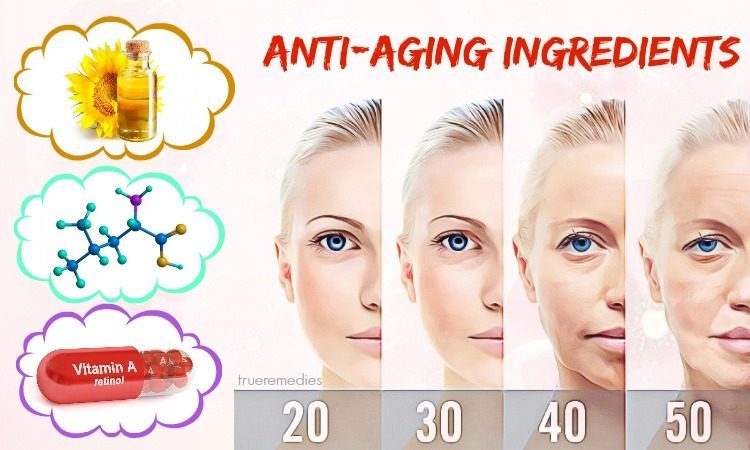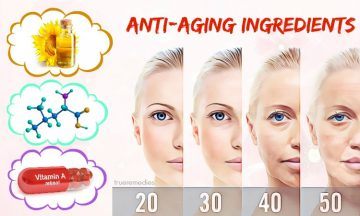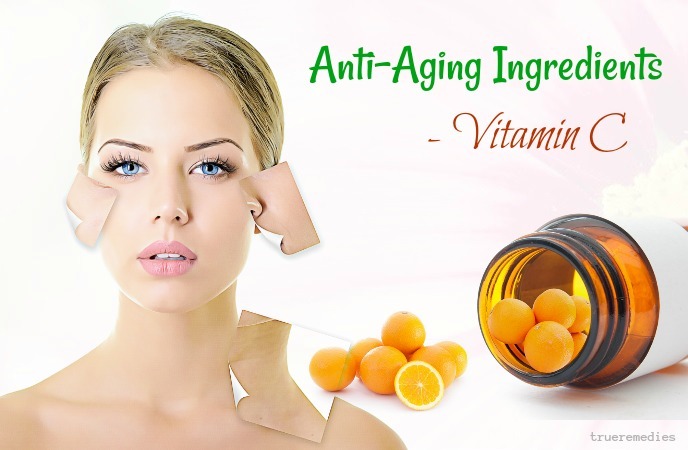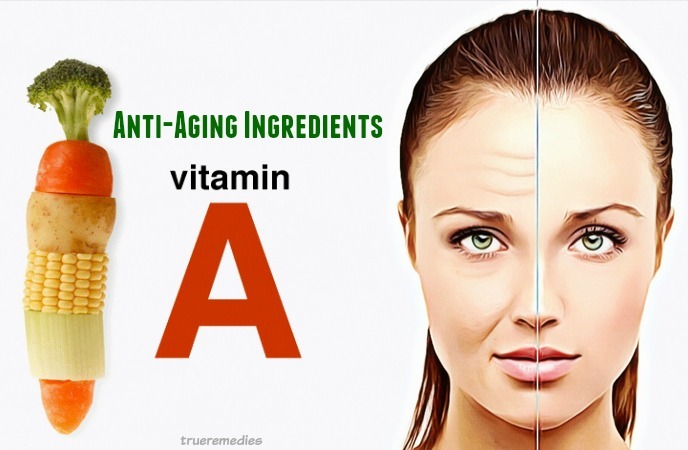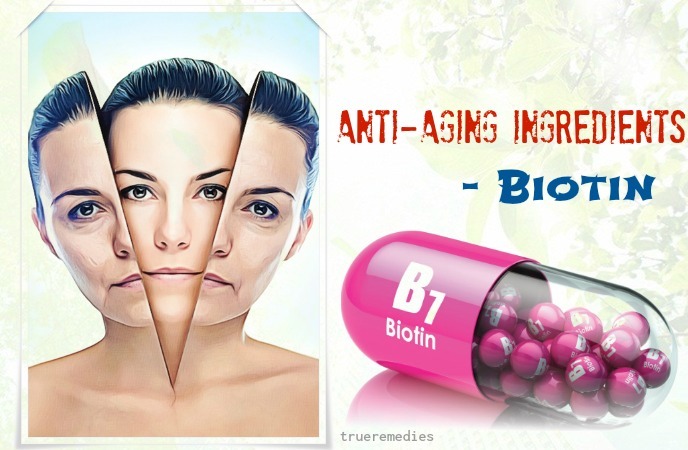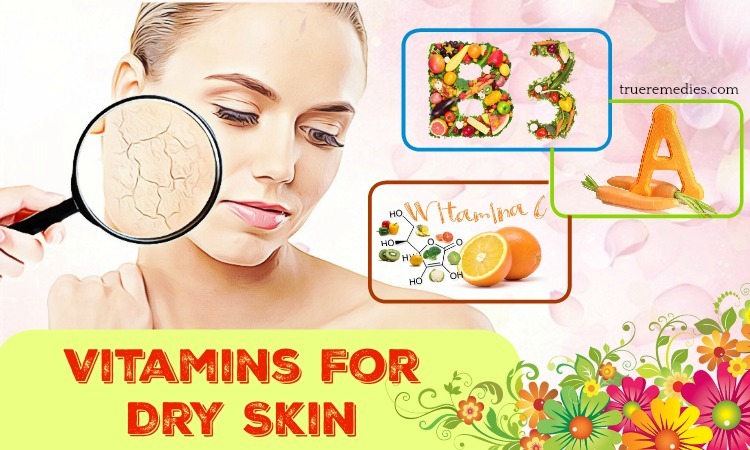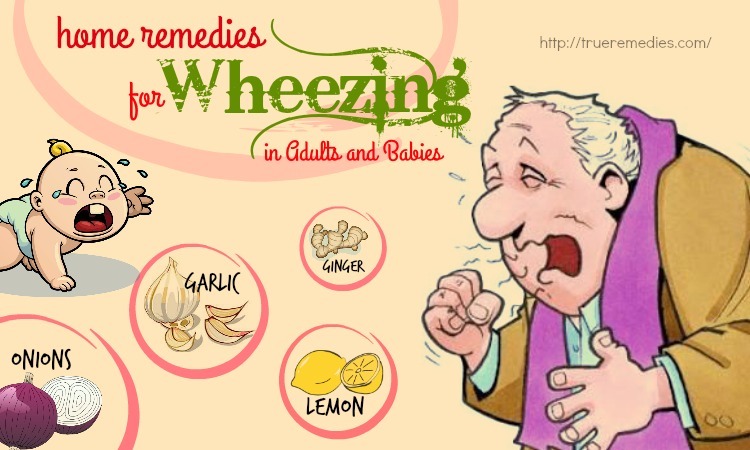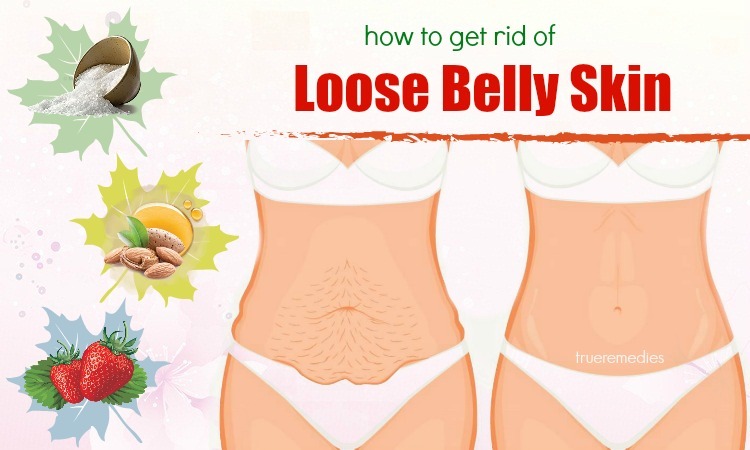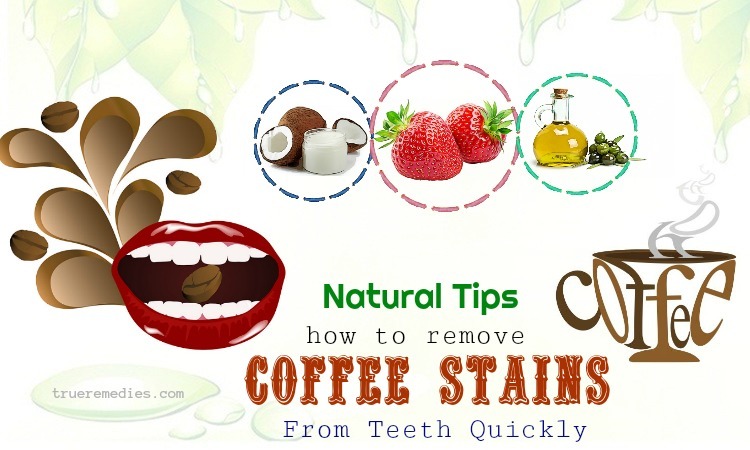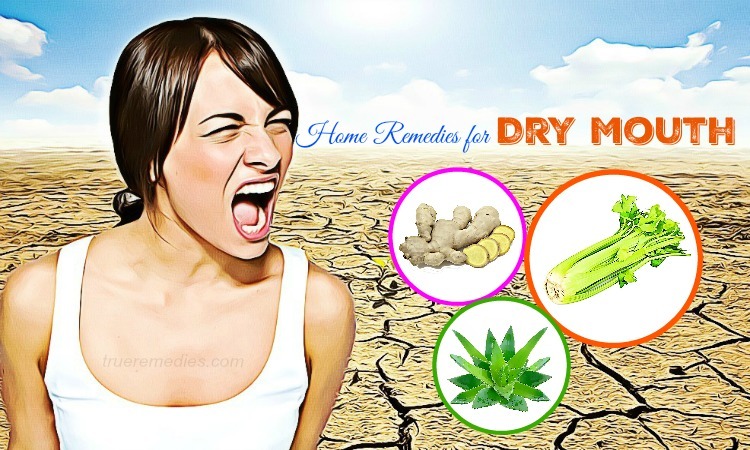updated: 11/21/2019
Contents
From a scientific point of view, the skin has been quietly affected by factors such as age, sunlight, environmental pollution, and stress from the age of 20. After the age of 30, the signs of aging skin like wrinkles, dryness, sagging skin, and loss of elasticity began to manifest. These signs can be easily seen with the naked eye, which makes many women feel unconfident.
Perhaps, the reason you are reading this article of 10 Natural Anti-Aging Ingredients Proven To Work For Skin is to either learn how to maintain youthful, glowing skin or discover practical tips to prevent premature aging. However, no matter what your purpose is, you had better understand some basic information about aging skin so you can deal with it the right way.
What Is Aging Skin?
Aging skin is a process that diminishes the functions of the skin. It causes the blood and lymphatic system to decline, damaging the underlying structure of the skin. There are two types of skin aging: internal skin aging and exogenous skin aging. Here's the information about them:
- Internal Skin Aging
Aging skin is also known as the natural aging process. It is an irreversible degeneration of tissues, affecting most parts of the body. Normally, skin aging starts when you are 20 years old. Aging skin is a continuous process, which by definition is inevitable. This is not the object to manipulate through changes in human behavior.
Aging skin causes structural and functional changes in all layers of the skin. Although it starts to affect you when you are 20 years old, the signs of internal aging are often not visible. Aging skin is an agent that produces wrinkles, age spots, and pigmentation problems, broken capillaries, dull skin texture, and other skin defects.
TrueRemedies Partner Solutions

Need a Help from the Leading Expert Online, Available 24/7?
They’re all here and ready to answer your questions online or by phone. Keep asking questions until you get the answer you need.
- Exogenous Skin Aging
Exogenous skin aging is usually caused by external factors put on the body. What is the external factor affecting the skin aging process? They include smoking, excessive drinking, poor nutrition, and pollution, harsh weather, and over exposure to the sun.
Other factors include repetitive facial expressions, gravity, and sleeping. In all external factors, exposure to the sun is considered to be the main factor that is harmful to the skin. According to researchers, 80% of facial aging is thought to be due to exposure to the sun.
What Are Common Symptoms Of Aging Skin?
Here are common symptoms of this skin condition:
- Wrinkles
The first signs that can be identified by age 25 and older are wrinkles and fine lines. These wrinkles appear in different areas of the face and are the most visible sign of aging skin. They are also known as wrinkles caused when laughing. Small folds can be seen in the cheek area. On the forehead, wrinkles become noticeable as horizontal lines, causing the face to express emotions and become deeper over time.
- Decreased Skin Density
A common skin condition in premenopausal women is a decrease in skin density, which is clearly visible on the skin surface that is thin and weak. Unlike wrinkles or diminished volume, diminished skin density affects the entire face, rather than just a certain area. They are often associated with deep wrinkles and tend to make the skin look dull.
You may experience other symptoms not mentioned. If you have any questions about the signs of this condition, please consult your doctor.
Who Is At High Risk Of Skin Aging?
Everyone undergoes skin aging. However, people who are often exposed to the sun and who have inappropriate skin care habits will face premature skin aging.You can control this problem by minimizing risk factors. Please see your doctor for more information.
When To See A Dermatologist?
Aging does not affect your health, so you do not have to worry too much about it. However, if you experience this condition too early when you are young, you should see a dermatologist for a direct examination.
Besides, if you have any questions about skin aging, please consult your dermatologist. Each person's condition is different, so please consult him or her to select the most suitable option.
There, you have discovered some information about skin aging. It’s is time to find out 20 out of best natural anti-aging ingredients proven to work for skin. Moreover, in this article, we also reveal which ingredients are best for you. Take a look at TrueRemedies.com!
Top 20 Natural Anti-Aging Ingredients Proven To Work For Skin
1. Vitamin C
Vitamin C is the first ingredient that we want to mention in this list of natural anti-aging ingredients for skin.
Vitamin C (Ascorbic Acid) is one of the most commonly used anti-aging agents. Most plants and animals have the ability to self-synthesize vitamin C, but some vertebrates and humans do not. Consequently, vitamin C supplements from food, supplements, or topical skin care are absolutely necessary. So how does vitamin C help fight skin aging?
- Vitamin C Helps To Limit The Damage Caused By UV Rays
Aging skin, dull skin, skin problems, such as pigmentation, freckles, and freckles, are the result of your skin getting contaminated with dust and toxic substances, especially UV rays in the sun too much.
To limit the damage caused by external factors to the skin, the use of sunscreen is absolutely necessary. However, you should also enhance your nutrients to nourish your healthy skin, which can withstand environmental stresses. Nothing is more appropriate than putting vitamin C in your face. Although vitamin C is not a membrane to protect your skin from the sun's rays, it works against the oxidation of the skin caused by UV rays, thereby preventing the growth of free stem cells.
- Vitamin C Can Fill The Epidermis
If you have “remnants” of acne, do not forget to take vitamin C immediately for damaged skin. According to the study, the epidermis, the outer layer of the skin, contains large amounts of vitamin C. So, if fully supplemented with vitamin C, the surface of your skin will become smooth. This also means that acne scars will quickly fill up and the skin will be regenerated quickly.
- Vitamin C Helps To Darken Bruises
Melanocytes in the epidermis are the melanin pigmentation plant, which determines the color of the skin. When the skin is damaged in combination with the effects of ultraviolet (UVA and UVB) rays, melanocytes are stimulated to form fibrillated dark spots. Vitamin C suppresses melanin formation and melanin pigmentation, as well as dulling the skin and smoothing out skin color, suppressing sebum secretion and minimizing pore size.
- Vitamin C Can Enhance The Collagen Production Of The Skin
Do you know that when you supply a sufficient amount of vitamin C to the skin and body, collagen production of the skin will be enhanced? As a result, sagging skin is improved.
Whether it is supplemented in any way (applied directly to the skin, taken to a functional diet, or supplemented through diet), vitamin C is beneficial. However, applying vitamin C directly to the skin will have the best effect. However, to achieve the desired results, you also need to pay attention to the use of vitamin C and some other note:
- Procedure For Taking Vitamin C For Skin Care
Keep in mind that always use low-pH products first, and always use liquid-to-condensed products. Ask for expert advice if you are wondering how to use vitamin C at any step in the skincare cycle.
- Use The Right Dosage
Remember that excessive use of vitamin C is not good for the skin. Skin can only absorb up to 20% of vitamin C, so use only as directed, do not abuse it.
- Combination Use With Vitamin E
Supplementing with vitamin C alone does not have much effect on the skin, combined with the concomitant use of vitamin E. The combination of vitamin C and vitamin E will increase the ability to produce natural collagen for the skin, making the skin healthy and younger.
- Start With Low Concentration Products
The higher the concentration of Vitamin C in the product, the faster the effect and the higher the likelihood of irritation. If you have recently used vitamin C, start with low concentrations first.
- You Should Take Vitamin C In The Morning
Vitamin C can be used at any time, but it is best to apply vitamin C to the face in the morning with a sunscreen, which will protect the skin against UV rays.
2. Vitamin E
Why is Vitamin E widely used in mask formulas or skincare products from popular to premium cosmetic brands? Certainly, this must be the ingredient that has many good and necessary effects for the skin. Refer to the effects of Vitamin E in the prevention and treatment of skin aging that we synthesize immediately:
- Vitamin E Helps Moisturize The Skin
It is considered to be the first moisturizer to be used. Women use natural oils that contain this ingredient to moisturize the skin. Although vitamin E has not been discovered before, it can be confirmed that the moisturizing effect of this ingredient has been proven for a long time.
As science evolves, experts have demonstrated the effect of Vitamin E in moisturizing. Since this ingredient is widely used, it improves not only the skin but also the hair and nails.
- Vitamin E Helps Heal Lesions In The Skin Structure
Most people only know the moisturizing properties of Vitamin E, but few know that this ingredient also has the effect of healing the damage in the structure of the skin. Initially, Vitamin E will restore the protective film, limiting the effects of ultraviolet light and external factors. After that, it is involved in repairing the damage, preventing the problem from moving worse. Vitamin E acts as a binding agent, which helps the fatty acids in the lipid membrane to have a close relationship, preventing skin from erosion in the face of pollutants.
- Vitamin E Is A Powerful Antioxidant
Many people are surprised when scientists claim Vitamin E is one of the strongest antioxidants. However, this is not the main effect, so the anti-aging ability of Vitamin E is not as good as Curcumin or Retinoids.
Cosmetic brands utilize the safety, benignness, and antioxidant properties of this ingredient to combine with Vitamin C to increase the product's lifespan. Although it is considered a typical ingredient in improving pigmentation, Vitamin C is a highly oxidative component. In addition, Vitamin E also increases the level of collagen production in the skin, which helps to prevent skin from forming wrinkles and sagging.
A study was conducted by students at New York University to demonstrate the antioxidant capacity of this ingredient. They began to select 100 women of similar age and skin status. They were divided into two groups: group 1 added vitamin E to the skin care process, group 2 did not. The study lasted for 3 months and then the results were very positive. Women in group 1 had smoother and firmer skin than women in group 2.
There are three ways to use vitamin E for your skin:
- Moisturize Skin With Vitamin E
Moisturizing is a necessity for the skin, whether it is oily or dry skin. However, many women focus on whitening and skipping this step. Try moisturizing with vitamin E by extracting vitamin E from the capsule then apply it to the skin. Massage gently to allow this oil to penetrate deeply into the skin.
You should adjust the amount of vitamin E to suit the needs of the skin. On dry days, apply a thicker layer of this oil on the skin. You can take advantage of the remaining Vitamin E to restore damaged hair shaft or to use effective nail care.
You can also moisturize your skin by adding Vitamin E through food. Some foods contain high levels of Vitamin E, such as natural oils, almonds, broccoli, and chicken eggs.
- Treat Freckles And Melasma With Vitamin E
Although vitamin E is not effective in eliminating and removing melanin cells, it is considered a supportive ingredient to enhance the effect of other ingredients. In addition, Vitamin E is also considered as an intermediate, which helps to optimize skin's absorption. Since then, the treatment of freckles and melasma becomes easier.
You should combine vitamin E with some ingredients containing active ingredients that directly affect brown spots, such as Vitamin C, Citric Acid, and Vitamin A. The combination of Vitamin E and turmeric starch to treat melasma and freckles is one of the most effective and popular mask types. All you need to do is to mix the ingredients together to form a thick mixture then apply it to face and wash your face after 10-15 minutes. Please repeat this 2-3 times a week to get the best results.
- Treat Acne With Vitamin E
Acne occurs on the skin due to many causes, including the underlying cause is lack of moisture. With oily skin, when it is dehydrated, it immediately stimulates sebaceous glands to produce more oil than normal. This causes clog pores and conditions for acne to develop. Another conclusion from scientists is that lack of moisture is the reason why the oil secretion tend to sticky, creating the environment for micro growth and development.
Therefore, it is very necessary to add moisture to acne skin. However, if the moisture supply is more than the skin needs, the acne spots will tend to swell. Adding the lemon to the mask formula will loosen the texture and fatty acids found in Vitamin E, which will help the skin to absorb nutritious easily. At the same time, the acid in the lemon will destroy the bacteria in the acne, causing it to quickly disappear without leaving scarring. Therefore, mix lemon with vitamin E to create a perfect mask to treat acne.
Note: For vitamin C and vitamin E, you can use them alone. However, the anti-aging ingredients below are usually included in skin care products.
3. Vitamin A
When it comes to natural anti-aging ingredients for skin, you cannot help but talk about vitamin A.
Vitamin A is a minor skin-care ingredient found on cosmetic brands. This vitamin is also called retinol. It has the ability to treat acne, promote cell metabolism, and stimulate collagen production in the skin. This is why you should use vitamin A to combat skin aging, increase skin elasticity and prevent wrinkles. Moreover, vitamin A is a powerful antioxidant, so it can treat acne and blur dark spots on the skin. Vitamin A is considered to be a favorite among dermatologists because of its outstanding features.
If you want to use Vitamin A (retinol cream) to improve your skin, you should start with a dose of 0.5% retinol and gradually increase the dose to 1.0%. Retinol is able to remove dead skin cells on the top layer of the skin so that during the first use, you will feel peeling and rough skin [1].
Therefore, when using retinol, you should wash your face with a soft towel to gently remove dead skin cells. Then, you should apply lotion regularly, especially sunscreen before going out to protect the skin.
If you want to use retinol to treat acne, regulate and control the activity of the sebaceous glands, you can apply it directly to the skin. The treatment of acne with retinol should be done regularly because when you stop using it suddenly, your skin will be oily and acne will appear again.
When taking vitamin A to beauty the skin, you should note some of the following basic elements:
- Note the appearance of the skin lotion packets containing vitamin A so that they are not deactivated when exposed to air.
- Pregnant or nursing mothers should not use retinol.
- Before using retinol, you should wash your skin with water, wipe it dry as it may cause it to become irritated when it comes in contact with retinol.
- Avoid using a retinol cream in conjunction with cosmetics containing benzoyl peroxide will lose their activities.
- Do not take generic retinol with lotions or other aesthetic treatments that contain skin peels.
4. Peptides
Peptides are one of the lesser known natural anti-aging ingredients for skin that you should not ignore.
Peptides are amino acid sequences that stimulate the production of fibronectin and collagen fibers of type I, IV, VII, XVII. This is a factor that helps firm skin, reduce wrinkles, and enhance the ability of the skin to recover itself under the impact of the environment. Some peptides used in cosmetics include:
- Palmitoyl pentapeptide-3 (otherwise known as matrixyl)
- Palmitoyl tetrapeptide-7
- Acetyl hexapeptide-3 (otherwise known as: argireline)
- Palmitoyl oligopeptide
The discovery of Matrixyl, a peptide concentrate (Palmitoyl Pentapeptide-3), shows the ability to stimulate collagen production in the skin. Recent research on the Argireline formula (acetyl hexapeptide-3) indicates that this peptide may produce an effect similar to Botox, which inhibits the mechanism of neuronal transmission to prevent the formation of wrinkles. New peptide formulas are available in the market that acts as growth factors, stimulating regenerating skin cells, renewing as quickly as younger ones.
5. Alpha Hydroxy Acids
Alpha Hydroxy Acids – AHA is a group of natural water-derived acids derived from foods, such as glycolic acid in sugar cane, latic acid in yogurt, citric acid in citrus fruits, apple malic acid, and tartaric acid in grapes.
The most typical AHA is Glycolic Acid, the optimal choice for those who have problems on the surface of the skin, especially skin aging thanks to the ability to soften the surface of the skin, minimizing the existence of the wrinkle. If you are serious and worried about anti-aging skin, then AHA will be the best choice for you. In addition, AHA also helps in the treatment of dry and oily skin, uneven skin tone or damaged skin.
6. Niacinamide
Among natural anti-aging ingredients for skin, Niacinamide is one of the most effective.
Niacinamide is a derivative of vitamin B3 that is able to support many of the skin aging problems. Niacinamide is effective in blending wrinkles at a concentration of 5%. Along with the ability to enhance skin protection, this ingredient helps prevent skin from dehydration, which makes the skin younger. Niacinamide also stimulates blood circulation in the epidermis, brightens the skin, blur melasma and reduces acne.
7. Ceramides
Ceramides is another must-try ingredient in this list of natural anti-aging ingredients for skin.
Ceramides make up about 20% of the space between the cells under the skin. It acts as “glue” that connects the skin cells together and protects and maintains the condition of the skin. When the skin is exposed to the sun, dry skin or improper skin care products, it will be damaged. Ceramides is an ingredient that can soothe and protect the skin from these damaging agents. So, adding ceramides to the skin is a great way to protect skin from the aging process, prevent dehydration, and help skin cells work better.
8. Oleic Acid
Oleic acid is one of little – known natural anti-aging ingredients for skin that you should not ignore.
Oleic acid is a fatty acid that is used to keep the skin in the best condition. In addition, it also functions to link the cells together while helping the skin cells to function healthily. In addition, its ability to reduce dermatitis is highly desirable. Oleic acid is therefore believed to be an important factor in improving skin aging [2].
9. Resveratrol
It is a powerful antioxidant polyphenol, found in red grapes, red wine, nuts, and fruits like blueberries and cranberry. Resveratrol has amazing skin protection benefits. Once applied to the skin, Resveratrol protects the skin against the sun, improves collagen production, and reduces skin cell damage. Resveratrol is a strong and stable antioxidant with significant anti-inflammation.
10. Coenzyme Q10
Coenzyme Q10 is the last one in this list of natural anti-aging ingredients for skin that we want to mention in this article.
Coenzyme Q10, also known as Ubiquinone, is naturally produced in our body, which is essential for healthy functioning mitochondria (the cell center of the cell). Elderly people often have less than 50% CoQ10 compared to young people, so CoQ10 is one of the most important nutrients that should be added to people age 25 and older.
The antioxidant effects of Q10 can also protect the skin against aging inside and outside the body, helping to reduce wrinkles around the eyes and slow down collagen depletion. Similar to vitamin C, Coenzyme Q10 can enhance your skin's protection better when used in conjunction with sunscreen [3].
11. Alpha-Lipoic Acid
Alpha-lipoic acid is one of lesser-known anti-aging ingredients, which has been linked to skincare as an antioxidant. It prevents inflammation and skin aging. That is why this ingredient is added to many skin products of many brands. Having a lot of benefits for skin, this powerful metabolic substance can support energy production in skin cells, regenerate vitamin C and E, inhibit the transcription factor NF-kB’s activation, reduce cellular inflammation, and stimulate AP-1. As a result, it helps remodel collagen and protect the skin from free radical damage, like sun exposure [4].
Alpha-lipoic acid is also called as “the universal antioxidant” since it is soluble in both fat and water. This substance is about 400 times stronger than the combination of vitamins C and E.
However, the most valuable property of this ingredient is the ability to deeply penetrate the surface of skin and skin cell membrane. As a result, alpha lipoic acid can be beneficial for both outside and inside of skin cells.
On the other hand, alpha lipoic acid also supports cellular metabolism while protecting skin cells against free radical damage. This substance can also smooth out the skin through boosting its capacity to remove dead skin cells. The oil production is also regulated with this potent antioxidant. Because too much oil may clog skin pores, this advantage will help reduce your risk of acne. Other benefits of alpha lipoic acid are relieving puffy eyes, reducing wrinkles and fine lines, evening skin color and minimizing skin pores’ size. Using alpha-lipoic acid also further activates other antioxidants like coenzyme Q10.
Also known as thiotic acid, this substance can also help with a lot of age-related diseases, such as stroke, heart disease, Parkinson’s disease, diabetes, and Alzheimer’s disease.
12. Biotin
Biotin can beautify both skin and hair. Also known as vitamin B7, biotin is water-soluble and acts as a coenzyme in the human body. It is essential for the metabolism of amino acids, fatty acids, and glucose. It means that when you consume foods containing proteins, carbs, and fats, biotin has to be present to convert as well as use such micronutrients for required bodily energy to execute some physical activities and for appropriate psychological operation.
Vitamin B7 can give you an attractive, young appearance; thus, it is added to many skin and hair care products. Despite the role of vitamin B7 in skin health is not totally understood, if you are in shortage of this vitamin, you will probably get scaly, red skin rashes [5].
According to some studies, deficiency in biotin can lead to a skin disorder named seborrheic dermatitis, aka cradle cap [6] actually, the role of biotin for skin health might be associated with its impact on fat metabolism, which is crucial for healthy skin [7].
People who are deficient in vitamin B7 might go through skin issues. Symptoms of biotin deficiency include dry scaly skin, hair loss, and cracking in mouth’s corners. Natural sources of biotin are soybeans, nuts, avocado, eggs and cauliflower.
13. Caffeine
Many people believe that caffeine can decrease cellulite’s appearance through constricting blood vessels, thereby firming up skin. In accordance with a study, caffeine possesses antioxidant properties, helping protect the skin against UV rays and slow down photo-aging process of the skin [8].
14. Glycolic Acid
Glycolic acid is a popular chemical exfoliant, which is derived from sugarcane. This acid is found naturally in many foods and has the ability to improve the production of elastin and collagen in the human body. As a result, it reduces premature aging signs. Actually, it is an alpha hydroxyl acid which is used to exfoliate dead skin cells and smooth out skin texture. This acid can decrease the appearance of aging and fine lines.
15. Green Tea
Owing to anti-inflammatory and antioxidant properties, green tea is worth mentioning in this checklist of anti-aging ingredients due to many reasons. Polyphenols, which is a kind of flavonoids in plants, is the major compound responsible for its anti-aging effects. Studies have concluded that green tea could alleviate sun damage, ward off the skin from cancer and reduce collagen breakdown. Polyphenols are thought to impact biochemical pathways which result in cell regeneration [9].
16. Hyaluronic Acid
Among anti-aging ingredients, hyaluronic acid might be renowned. Acting as an amazing moisturizer, this acid is a main contributor that keeps your skin hydrated and supple. It is found in your body and could be used as a great natural alternative to the synthetic fillers. Hyaluronic acid could be compared with polymers when it comes to the ability to keep water, but much greater. You should make use of topical hyaluronic acid two times per day to get the best anti-aging effects [10].
17. Jojoba Oil
This is a vegetable wax which is extracted from the jojoba plant. Having a high content of vitamin E, B-complex vitamins and zinc, jojoba oil can help fight off aging signs, particularly in sensitive skin. This essential oil can take control of acne if used regularly, brighten up dark circles under eyes, and minimize eye puffiness.
18. Lactic Acid
Lactic acid is naturally present in milk and has a larger structure than glycolic acid. Like glycolic acid, lactic acid is also an alpha-hydroxy acid but more moisturizing to the skin than the glycolic acid. It is less likely to result in irritation. Thus, this acid is a great choice for people with sensitive skin. Lactic acid when used on skin does not impact the skin’s thickness.
This acid can penetrate deeply into the skin pores, thereby sloughing off dead skin cells and leaving a smoother, more radiant skin layer underneath [11].
If you would like to take advantage of lactic acid as one of anti-aging ingredients, you can buy creams containing lactic acid. Lactic acid can gently resurface the complexion. It can attract and hold the moisture in your skin because it is a humectant. If your skin is sensitive, a high concentration of lactic acid may lead to irritation on skin. Thus, you had better do a patch test in advance.
19. Malic Acid
Naturally found in the human body, malic acid could improve immunity and balance pH levels of your body. This acid is excellent in improving the conditions of wrinkles, fine lines, large skin pores, and boosting the skin texture in general. You can find malic acid in the natural forms in apples. Malic is a cousin of glycolic acid, but is more suitable for sensitive skin.
20. Plant Stem Cells
In regard to anti-aging ingredients, plant stem cells make their fame by replacing, rather than repairing, those damaged skin cells. They have the ability to split and self-renew. Therefore, they have a lot of uses, such as increasing the production of collagen and decreasing inflammation.
So you have found out the most effective natural anti-aging ingredients today. Right now, look in the mirror, determine your skin condition and select a suitable ingredient. Hopefully, you will quickly regain your youthful skin. If you have any contributing ideas about our article of “Top 20 Natural Anti-Aging Ingredients Proven To Work For Skin”, do not hesitate to drop your words below this post. We will answer as soon as we could.
For more skin care tips and knowledge, visit our main SkinCare Category.

